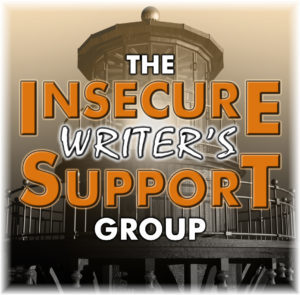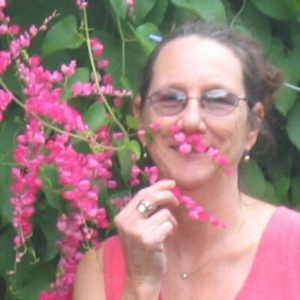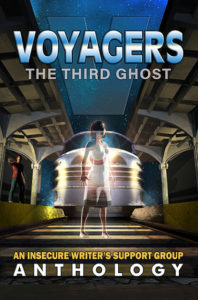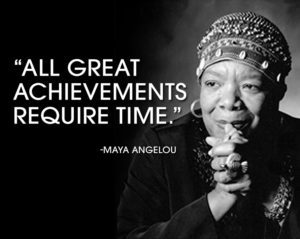Why is March Mad?
From what I can find, March Madness was coined in the mid-1900s. Supposedly, people started behaving oddly. Could it have been the windy conditions that stirred everybody up and jiggled their gizzards? Maybe it was the erratic weather in general after the cold silence of winter when everything came out of “hibernation.” Then, of course, there are those hares that develop peculiar antics during their March mating season. “Mad as a March hare” is a British simile that first appeared in the 1500s.
Because Not Guilty has a lot about the sport of basketball, I ran into another use for March Madness while I was doing research. It’s during March and early April that the National Collegiate Athletic Association (NCAA) men’s and women’s college basketball tournaments are held. It’s an exciting, wild time for basketball, and March Madness seems to capture the mood.

Join Us Now
Our Twitter handle is @TheIWSG and hashtag is #IWSG.
Every month, we announce a question that members can answer in their IWSG post. These questions may prompt you to share advice, insight, a personal experience or story. Include your answer to the question in your IWSG post or let it inspire your post if you are struggling with something to say.
Remember, the question is optional!
March 4 question – Other than the obvious holiday traditions, have you ever included any personal or family traditions/customs in your stories?
The awesome co-hosts for the March 4 posting of the IWSG are Jacqui Murray, Lisa Buie-Collard, Sarah Foster, Natalie Aguirre, and Shannon Lawrence!
I’m skipping the question this month because the answer is no. And also because I’ve posted in the IWSG site today, so isn’t that enough writing for one morning? Also, I have a special guest who has a short story coming out in the next IWSG anthology. If you haven’t met Bish Denham, you must because she’s awesome, so here she is.

Welcome, Bish!
Thank you, Lee, for having me on your blog!
You had an interesting life as a young girl growing up on a beautiful island. Can you tell a bit about how those early years have made you the writer/person you are today?
I think one thing that has made me the writer/person I am today (aside from having extraordinary parents and a fabulous older sister) is that I had a very long childhood. I was carefree and innocent much longer than most kids. This long childhood was packed with imaginary games with my best friend and all kinds of wonderful, mysterious magic. Even as a teen, I was quite naïve compared to my peers. I was shy and introverted. An observer. Perhaps growing up on the ocean and living with the ever-changing nature of its being, instilled in me a sense, “That everything changes and that’s okay.” Growing up in the Virgin Islands definitely had a profound affect on my life, one that I’m am ever so humble and grateful to have had. Has a consequence, most of my stories have a Caribbean color and flavor.
What in your life would probably surprise your readers the most?
How about that at the age of 21 I went from the tiny Virgin Islands to Los Angeles? Yup. Talk about culture shock. Though I only lived and worked there nine or ten months, I packed in more experience than any naïve person should. But I don’t regret a thing.
Everyone has fears. Some of us have phobias. Can you share what frightens you most?
I used to be terribly afraid of spiders. I think I was near phobic about them. But I desensitized myself by handling daddy longlegs when I was in my 30s. Now I love spiders. However, if I do see a poisonous one, like a black widow I will kill it. Other than that I’ve always been kind of fearless and curious, which I think goes along with being so naïve. I didn’t know to be afraid of things or people. Now, of course, I’m much more cautious. As I’m getting older, I do think about death and dying more than I did. I think I’m more concerned about the dying than actual death. Like anyone, I don’t want to suffer. I don’t want to be in pain. I don’t want to be a burden to people when my time comes.
What motivated you to enter the anthology contest?
Two things motivated me. One: it was for middle graders, those fabulous tweeners who are still open to magic while just beginning to realize the world is a lot more different than they thought. Two: the theme, Voyages. The Blind Ship has been sitting in my files for many long years waiting to find a home. I tried peddling it around when I first wrote it, but no one was interested, perhaps because the subject matter is rather dark. So, when I saw the theme I knew immediately I had to give The Blind Ship a go. I pulled it out, dusted it off, added a few things, tweaked it and, holding my breath, pushed the send button.
Your story in the anthology is based on history. Tell us about that history and why you chose to write about it. Will you give us a snippet of The Blind Ship?
I chose to write about the story of twelve-year-old Jacques B. Romaigne because I think it’s important. His journey on the slave ship Le Rodeur, comes directly from his journals. I have fictionalized some things like conversations, his stay in Bonny, and his and his mother’s attitude toward slavery. However, some of the journal entries I use in the story are his. Jacques was returning to the island of Guadeloupe in the Caribbean after visiting family in France. The ship stopped at Bonny on the coast of Africa where they picked up slaves before continuing on. The slaves brought with them a highly contagious eye disease that, at worst could cause permanent blindness. Except for one crew member, everyone on the ship—including Jacques—contracted the disease. It’s what happened to the slaves, the crew, and to the ship that makes this story so dark and unbelievable. News of what happened spread around the world. Abolitionists in France read Jacques deposition in Parliament in a bid to abolish slavery and John Greenleaf Whittier wrote the anti-slavery poem “The Blind Ships” based on Jacques story.
Excerpt:
At last we are on our way, He wrote a few days later. Le Rôdeur is 200 tons and we now have on board 160 Negro slaves.
Jacques reread his words. He had already commented on the fair weather carrying him toward the Caribbean. He tried not to think about what lay in the close dank, dark quarters of the hold. It was enough that he could hear their muffled moans and cries through the decking.
He took up his quill and continued writing.
I know you will miss me while you tarry in France, but father needs me on the plantation. Besides, I long to see the green hills of Guadeloupe and the blue waters of the bays. Take heart, Mother, soon you will follow and we will be together once again.
At dinner a few days later, M. Gagne and Captain Boucher spoke of shipboard issues. Jacques, as a paying passenger, ate with the men. They talked over his head, as if he wasn’t there.
“The slaves have brought ophthalmia on board with them,” said M. Gagne.
“Ophthalmia?” asked Jacques. “What is that?”
“An eye disease that causes blindness.” said M. Gagne. “At worst the blindness is permanent. Most often, if treated properly, vision will return, though in some cases one’s sight will be impaired.”
“How bad?” asked Captain Boucher.
“It is spreading at a frightful rate. There are already more than I can manage.”
Thank you so much for this, Bish. Here’s to a great launch.

Release date – May 5, 2020
Print 9781939844729 $13.95
EBook 9781939844736 $4.99
Juvenile Fiction – Historical / Action & Adventure / Fantasy & Magic
Dancing Lemur Press/Freedom Fox Press
Quote of the Month:




